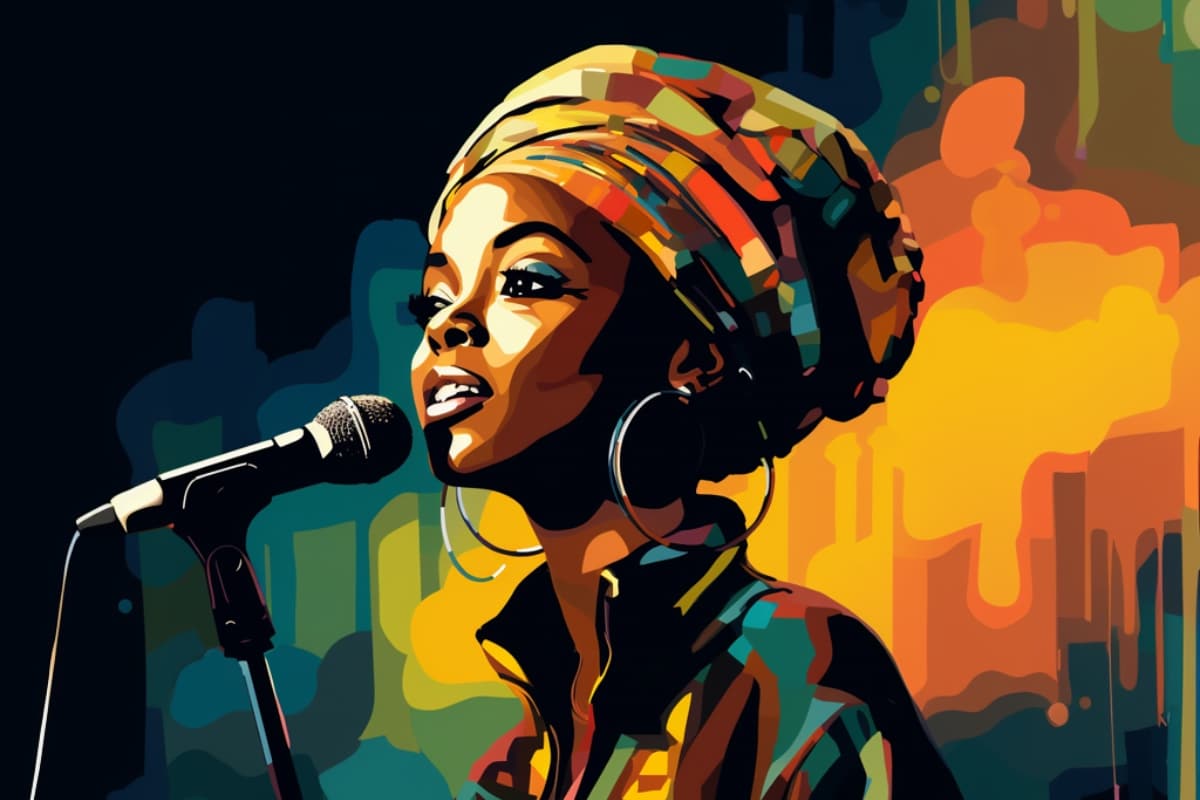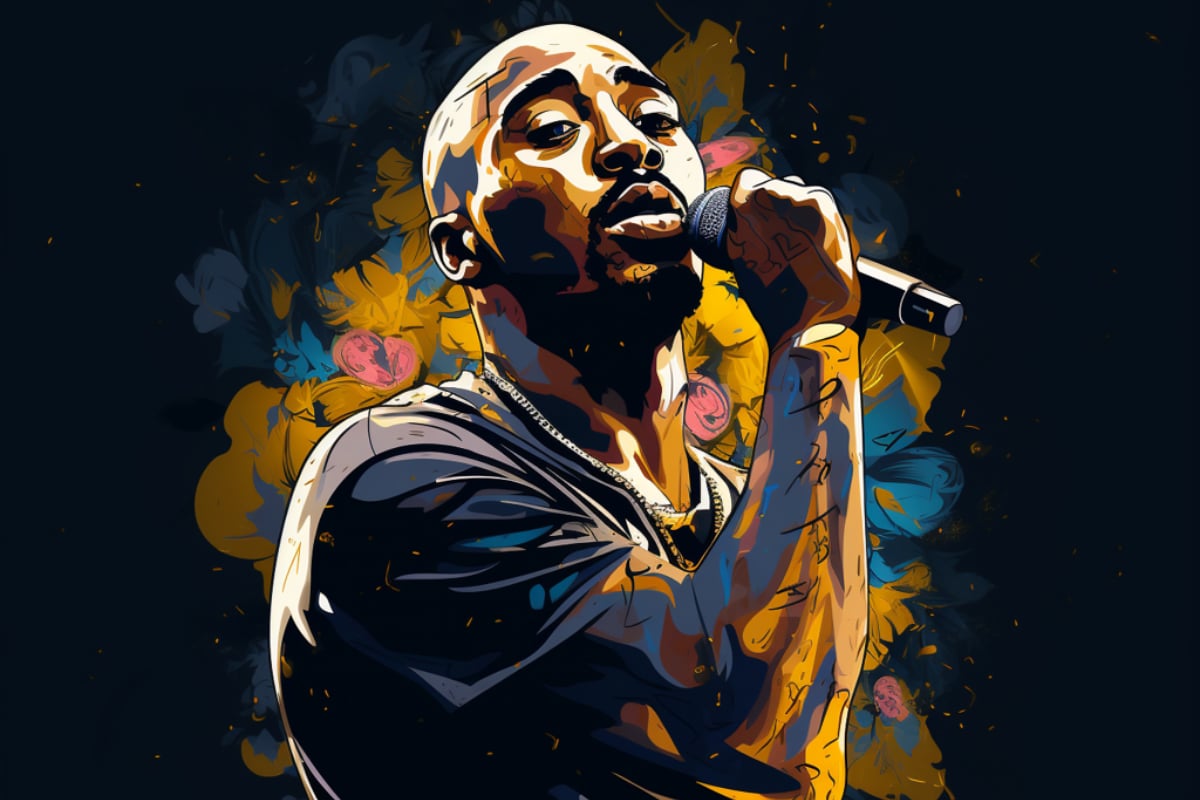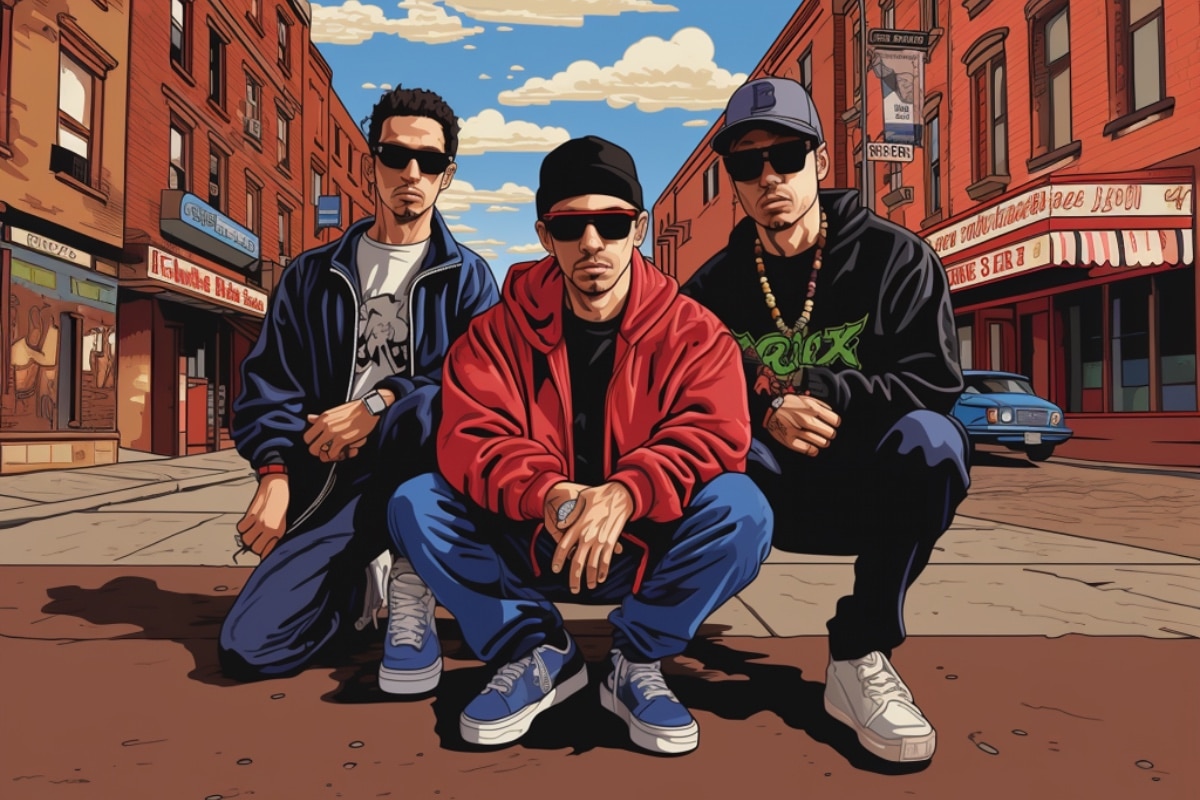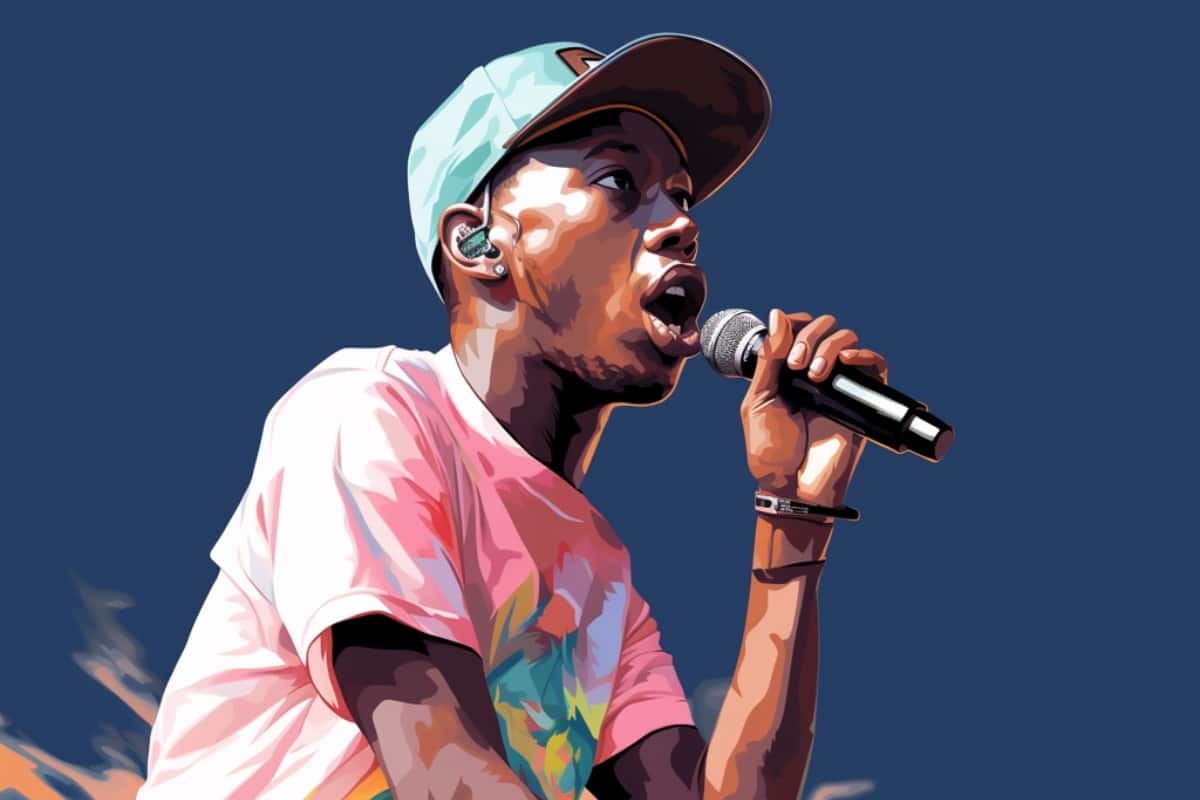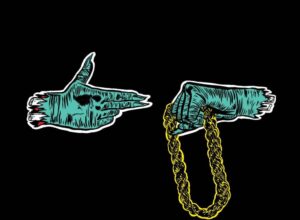In the echelons of hip-hop, where bars and beats reign supreme, a rare breed of artists has emerged, blurring the lines, coloring outside the pre-sketched boundaries, and giving a new definition to lyrical dexterity. They ain’t just rappers. Nah, that title’s too constrictive. They’re melodic architects, building bridges between the rugged terrains of rap and the smooth landscapes of soulful melodies.
Drake, a name that resonates beyond the towers of Toronto, exemplifies this fusion. The soulful echoes of Take Care and the rhythmic tales woven into Nothing Was the Same aren’t just markers of a rapper in his prime, but a vocalist painting pictures with a palette composed of bars and melodies. Now, step back into a timeless era where Lauryn Hill reigned. The soul-stirring narratives laced in The Miseducation of Lauryn Hill weren’t confined by beats and breaks. Ms. Hill’s stories leaped from the speakers, a harmonious blend of soul-searing verses and heart-tugging vocals.
And let’s not sleep on Kanye. Before the antics and the headlines, Ye was a musical prophet. 808s & Heartbreak? That was more than an album; it was a sermon of vulnerability, where each song, each verse was a testament of a rapper unafraid to let his vocals bleed raw emotion. Enter the ethereal world of Kid Cudi, a space where the moon casts shadows of haunting yet harmonious refrains. Man on the Moon is a cosmic journey where rap verses sit side by side with melodic echoes, each telling tales of the night, of dreams half-whispered and nightmares loudly declared.
So let’s get into it. From Juice WRLD, Young Thug, Future and Kevin Gates to Ja Rule, Nelly, Eminem and Drake, here are the top 25 best singing rappers of all time.
25. Mac Miller
Mac Miller’s music resonated because it felt genuine. Starting off with party anthems, his growth as an artist saw him dive deeper into personal stories and emotions. One element that truly set him apart was his ability to sing. Unlike many rappers who might lean on autotune or just dabble in melodies, Mac incorporated singing into his tracks in a way that felt both natural and compelling. Songs like “Objects in the Mirror” showcased this skill, blending his sharp rap verses with smooth choruses. It wasn’t about showcasing vocal gymnastics for Mac, but more about adding another layer to his storytelling. In a rap game filled with spitters, Mac carved out a space as a rapper who could genuinely croon.
24. Kevin Gates
Straight out of Baton Rouge, Kevin Gates emerged as more than just another Southern rapper. Gates, with his gritty and evocative lyricism, holds a reputation for laying his emotions bare on the track. But it’s not just bars with him. This man can harmonize, letting those melodies seep into the raw stories he crafts. Tracks like “2 Phones” and “Really Really” are clear examples where he infuses his raps with a catchy melodic undertone. But then you slide over to a song like “Satellites,” where his singing takes on a raw, heartfelt tone, proving he’s not limited to hooks and choruses. The thing with Gates is, whether he’s rapping or singing, the authenticity never wanes. The streets feel him, the clubs bump him, and those who’ve felt pain resonate with him. Kevin Gates isn’t just a rapper; he’s an embodiment of raw emotion, seamlessly transitioning between hard-hitting verses and vulnerable choruses, showcasing a musical versatility that’s hard to come by. Whether he’s dropping bars or letting out a soulful croon, Gates ensures the listener feels every word.
23. Fetty Wap
Fetty Wap stormed the scene in 2015 with his infectious blend of singing and rapping, a style that resonated deeply with fans hungry for a fresh approach. That raspy voice, paired with a unique melodic flow, turned “Trap Queen” from a regional hit into a nationwide anthem. But Fetty didn’t stop there; tracks like “679” and “My Way” further showcased his knack for crafting hooks that walked the line between rap verses and catchy sung choruses. The Paterson, New Jersey native’s ability to fuse these styles spoke to a larger evolution in hip-hop, a genre more open than ever to the convergence of its boundaries with R&B and pop. While some purists might’ve been hesitant to embrace this change, there was no denying Fetty Wap’s impact. He brought a wave, making it cool to wear both hats – the rapper and the singer, all without losing street cred. In a world where everyone was trying to find a niche, Fetty confidently occupied two.
22. Pimp C
Pimp C, one-half of the legendary UGK, was more than just a force in the rap game. While Bun B laid down those gritty bars, Pimp C added an unmissable soulful touch with his smooth, melodic hooks and verses. He wasn’t a traditional singer, but his ability to switch from rapping to a bluesy, Southern drawl showcased a broad musical palette. And, beyond the vocals, his production often carried a musicality, influenced by church choirs and southern soul, which played well with his melodic inclinations. In an era where the South was staking its claim in hip-hop, Pimp C’s fusion of rapping and singing set a precedent for the genre-blurring styles we see today. It’s this duality that made Pimp C not just a rapper, but a full-blown musician, deeply rooted in the rich musical heritage of the South.
21. Chamillionaire
Chamillionaire, the Houston hustler known for his rapid-fire flow and intricate wordplay, surprised many when he showcased his prowess as a vocalist. While he etched his name in hip-hop history with bars, it’s often overlooked how he blended rapping with catchy melodic hooks. His magnum opus, “Ridin’,” was a clear example. While the verses were pure rap, that chorus, with its memorable melody, showcased Cham’s ability to sing a hook that would stay stuck in your head. But “Ridin'” was just one of many. Dive deeper into his discography, and you’ll find tracks like “Grown and Sexy” and “Good Morning” where he plays with melody just as skillfully as he constructs bars. In a Houston scene dominated by chopped and screwed beats and hard-hitting lyricism, Chamillionaire emerged as a multi-faceted artist, merging rap with R&B-esque hooks, proving the city had more to offer than just one flavor. He might not be the first name you think of in the singer-rapper conversation, but sleep on Cham’s vocal versatility, and you’re missing out.
20. Kendrick Lamar
Kendrick Lamar, the Compton prodigy, has a unique relationship with blending rap and melody. While he’s largely acclaimed for his potent lyrical content and masterful storytelling, K-Dot doesn’t shy away from injecting melodic flows into his tracks. It ain’t about crooning love ballads, but more about amplifying the mood of his narratives. Take “Bitch, Don’t Kill My Vibe” or “LOVE.” for instance, where Kendrick Lamar songs fluidly transitions between rapping and a melodic cadence. His work on “i” offers a soulful chorus where his voice dances between sing-song and classic rap. And who can forget the haunting intro of “u” where his voice cracks under raw emotion? The thing with Kendrick is, he’s not trying to be an R&B star, but he recognizes the power of melody to push forward a story or emotion. It’s this seamless blend of bars and melodies that further cements his status as one of the most versatile artists in the game.
19. Travis Scott
La Flame’s auto-tuned croons on tracks like “Antidote” and “Goosebumps” merge with his lyrical verses, creating a murky soundscape that’s uniquely his. It ain’t just about catchy hooks; Scott’s mastery lies in crafting an entire mood. Take “STARGAZING” or “SICKO MODE”; the transitions, beat switches, and the juxtaposition of his rapping against melodic elements show a dude deeply in tune with the musical moment. Travis is an orchestrator of vibes. His influence on the genre is undeniable, pushing the boundaries and challenging what hip-hop can sound and feel like. For Travis, it’s not about fitting into a box—it’s about exploding the box and reshaping the fragments.
18. Juice WRLD
Juice WRLD was a sonic chameleon. While many knew him for his catchy hooks and emotional lyricism, it was the blending of his singing and rapping that really set him apart. His breakout track “Lucid Dreams” is a testament to this—a melancholic ballad seamlessly sewn together with rap verses, narrating the pain of heartbreak. Juice’s voice had a rawness, an unfiltered edge that connected deeply with listeners. Songs like “Robbery” and “All Girls Are The Same” echo this sentiment, drenched in emotion yet rooted in hip-hop. The Chicago native took cues from the punk and rock scenes, fusing them with rap to craft his own lane. Juice was both a product and a pioneer of the SoundCloud era, bridging the gap between rap and emo. He sang of struggles and sorrows but always with a melodic twist that resonated with a generation. His untimely departure left a void, but his legacy is one of blending genres and emotions, making him a standout in the panorama of rappers who can sing.
17. Young Thug
Young Thug, the ATL enigma who sounds like he’s from another galaxy altogether. More than just rapping, Thug often opts for melodic ad-libs and harmonious flows that blend the line between rapper and singer. Tracks like “Check,” “Digits,” and “Wyclef Jean” showcase his capacity to juggle melodies and rap verses effortlessly. And then there’s “Havana” with Camila Cabello, where his versatility shines in a pop setting. But what’s wild about Thug isn’t just his capacity to sing, but how he uses his voice as an instrument—twisting, turning, and contorting it in ways that are sometimes inhuman. In a landscape where many artists can carry a tune, Young Thug’s eccentricity and refusal to be boxed in make him one of the most distinctive voices to harmonize in the rap game. He’s not just a rapper who can sing; he’s a sonic innovator, bending genres and expectations.
16. Nicki Minaj
Nicki Minaj, the queen from Queens, stormed onto the hip-hop scene with bars so fierce they’d make seasoned emcees think twice. But beyond her unparalleled rap prowess, Ms. Minaj flexed her singing chops from the jump. Sure, everyone remembers “Super Bass” where she skillfully balances pop sensibilities with raw spitting, but Nicki’s vocal talents extend far beyond that hit. On tracks like “Right Thru Me” and “Grand Piano,” she trades in her rapid-fire bars for soulful, emotive melodies. And then there’s “Starships,” a track that’s straight pop, yet undeniably Nicki. Some might’ve thought it was a risky move for a rapper to delve into the pop world so deeply, but for Nicki, it was just another day at the office. What makes her stand out isn’t just that she can seamlessly switch between rapping and singing, it’s that she excels at both. With every harmonic verse or sung hook, she reminds the world that she’s not just one of the best female rappers to ever do it, but a multifaceted artist capable of owning any genre she steps into.
15. Lil Wayne
Lil Wayne, the New Orleans wordsmith, had a journey in hip-hop that could rival any odyssey. Starting out as a Cash Money hotshot spitting raw bars, Weezy’s evolution saw him tapping into his melodic side, something many didn’t see coming from the “Go DJ” rapper. But Wayne, ever the innovator, wasn’t about to be boxed in. On tracks like “How to Love,” he showcased a tender, singing side, turning what could’ve been a throwaway song into a profound introspective joint. And then there’s “Lollipop,” a track where Wayne’s autotuned crooning meshes perfectly with his sharp lyricism, giving us a new kind of hip-hop anthem. Even on mixtapes, he’d occasionally switch up the energy, blending sung hooks with those iconic Weezy bars. Some purists raised an eyebrow at Wayne’s vocal forays, but he never sweated it. Instead, he kept pushing, often blurring the lines between rapping and singing, and in the process, proving he was more than just a rapper; he was a full-blown artist. Lil Wayne’s willingness to blend rap with melodic elements made the road smoother for a lot of the genre-bending artists that followed.
14. Kanye West
Kanye West, the Chi-town enigma, is a force of nature in the music world. ‘Ye burst onto the scene with that signature soulful production, but it didn’t take long for him to jump from behind the boards and showcase his prowess on the mic. Yet, amidst the braggadocious bars and introspective lines, Kanye’s melodic sensibilities always shone through. Tracks like “Heard ‘Em Say” and “Runaway” highlight ‘Ye dabbling in those melodies, adding depth and layers to his storytelling. But it’s albums like 808s & Heartbreak where Kanye’s singing takes center stage. Drawing from personal pain and a drive to innovate, ‘Ye shifted the paradigm, diving deep into auto-tuned crooning, laying down a blueprint for the emotional, melodic hip-hop wave that flooded the next decade. And let’s not forget “Only One,” where West’s heartfelt, sung tribute to his mother and daughter tugs at the heartstrings. While Ye’s antics might sometimes eclipse his art, there’s no denying that his foray into singing added another dimension to hip-hop, challenging the norms and reshaping the sound of a generation. Whether you’re vibing to “Street Lights” or getting in your feels with “Heartless,” Kanye’s knack for melody is undeniable.
13. Missy Elliott
Missy “Misdemeanor” Elliott is that rare blend of innovation, swagger, and versatility that has left a distinctive mark on the hip-hop game. She’s not just a rapper or a producer; she’s a genre-bending artist, seamlessly merging hip-hop with R&B, funk, and electronic vibes. When you dive into Missy’s discography, it’s evident she never boxed herself into the traditional confines of an MC. Who can forget the silky harmonies on “Sock It 2 Me” or the melodic flow of “The Rain (Supa Dupa Fly)”? Her willingness to sing on tracks added another flavor to her already eclectic sonic palette. And then there’s “Beep Me 911,” a joint where Missy’s sung hook is as catchy as her verses. While many MCs might’ve been content just spitting bars, Missy recognized the power of a hook and wasn’t afraid to flex her vocal chords. This wasn’t just singing for the sake of melody; it was an integral part of her unique artistry, adding color and contrast to her tracks. Missy Elliott’s duality as both a rapper and a singer not only elevated her own work but also set a standard for the multifaceted artists that followed in her wake.
12. Eminem
Eminem, the Rap God from 8 Mile, is mostly revered for his unmatched lyrical prowess and intricate rhyme schemes. But, while he might not be the first name to come up when thinking of rappers who can sing, Marshall Mathers has dabbled with his vocals quite a bit. He’s not out here hitting R&B notes, but Slim Shady knows how to use melody in a way that complements his storytelling. Think tracks like “Mockingbird” where he melds singing with his aggressive rap style to drive the emotional resonance home. And then there’s “Hailie’s Song,” where Em boldly decides to sing a significant part of it, saying he “can’t sing” but feels it deeply. It’s that raw authenticity, not pitch-perfect vocals, that made those moments memorable. In Em’s case, his forays into singing were less about showcasing a polished voice and more about raw emotion, adding another dimension to his legendary career.
11. Childish Gambino
Childish Gambino, the alter ego of multitalented Donald Glover, is an enigma in the rap game. He stepped onto the scene with witty punchlines and quirky references, but over time, Gambino showcased a broader palette. This man’s not boxed into one category; he’s an artist, through and through. Take “Redbone” for instance – a seductive, funky ballad with a falsetto that had everyone questioning if it was truly him. And then, juxtapose that with tracks like “3005” or “Bonfire,” where he’s spitting bars but still manages to infuse melodic elements. From his early mixtapes to the soul-infused Awaken, My Love!, Gambino consistently blurred lines, defying genres. As he evolved, the industry watched in awe as he transitioned from a comedic actor turned rapper into a bonafide musical genius who could sing just as well as he could spit. With every album, every project, Childish Gambino solidified his stance: he’s more than just a rapper. He’s a vocalist, a creator, an innovator, breaking molds and redefining what it means to be an artist in the hip-hop arena. One thing’s for sure: when Gambino sings, it’s not just about the notes; it’s about the narrative, the soul, and the boundless creativity he brings.
10. Kid Cudi
Kid Cudi, a name synonymous with introspective melodies and atmospheric vibes, changed the game in ways few could’ve predicted. Cudi isn’t just a rapper who can sing; he’s the bridge that connects rap’s raw authenticity with the emotive reaches of alternative and psychedelic music. Remember those first times hearing “Day ‘N’ Nite” or “Pursuit of Happiness”? You didn’t just get bars; you got a mood, a feeling, a journey into the mind of Scott Mescudi. But here’s the thing: Kid Cudi’s singing wasn’t just about carrying a tune. His hums alone could pack more emotion than some artists’ entire discographies. His 2009 debut album, Man on the Moon: The End of Day, introduced us to his melodic prowess, with tracks like “Soundtrack 2 My Life” and “Solo Dolo.” Fast forward, and you’ve got the Kids See Ghosts project with Kanye, where again, his vocal diversity shines through.
9. Andre 3000
Andre Benjamin’s status as one of hip-hop’s most innovative lyricists is unquestioned, but the man can croon just as effectively as he can spit. You see, Dre never felt the need to stick to just one lane. He merged funk, jazz, blues, and pop elements into his hip-hop base, creating a sound uniquely his own. Remember “Hey Ya!”? Of course, everyone does. But here’s the thing: that song’s catchy chorus and infectious beat masked a deeper, melancholic message, showcasing Dre’s capacity to sing about heartbreak and disillusionment in a way that had the whole world dancing. But there’s more. Dive into “Prototype” or “She’s Alive” off The Love Below, and you’ll witness the full scope of his vocal versatility, effortlessly shifting from rapping to singing, from playful to introspective. Andre 3000’s ability to fuse together rap and melody wasn’t just a trend; it was a testament to his artistic evolution. He wasn’t content with just being a “rapper.” Andre sought to be an all-encompassing musician, and in doing so, elevated the conversation around what a hip-hop artist could — and should — sound like. With a voice as smooth as southern hospitality, Three Stacks showcased that a rapper could be just as soulful behind a sung hook as they were behind 16 bars.
8. CeeLo Green
CeeLo Green, the soul machine, is a whole vibe. Long before he was riding high with hits like “Forget You,” CeeLo was ripping mics as part of Goodie Mob, a pillar of that dirty south, Dungeon Family sound. With tracks like “Cell Therapy” and “Black Ice,” his rugged raps cemented him as a force in the game. But here’s where the twist comes: while CeeLo could spit with the best of ’em, the man’s singing voice was nothing short of buttery gold. His transformation from the “rap game” to the “soul train” was smooth, a seamless blend that few could’ve predicted but none could deny. Who else could’ve paired up with Danger Mouse to form Gnarls Barkley and give us the haunting yet soulful sounds of “Crazy”? That’s CeeLo’s magic. The way he can dip his vocals into a cauldron of funk, R&B, soul, and hip-hop to cook up something entirely new. Even within his solo ventures, tracks like “Bright Lights Bigger City” and “Music to My Soul” showcased his unmatched ability to float between genres. In the rap game, versatility is a prized asset, and CeeLo Green doesn’t just own that asset; he’s the blueprint for it. The man is a testament to the ever-evolving nature of music and the boundless limits of hip-hop when merged with soulful melodies.
7. Future
Dirty Sprite, lean sippin’, “Mask Off” maestro, Future’s presence in hip-hop can’t be underestimated. But here’s what’s slept on: Future’s melodic prowess. Future has crafted a unique hybrid style where his Auto-Tuned raps seamlessly transition into sorrow-laden singing, making him both a pioneer and a trendsetter. It’s more than just about catchy hooks and tunes with Future; it’s about vulnerability. Check tracks like “Codeine Crazy” or “Throw Away,” where Future melds his voice with the beat, crooning about pain, love lost, and the duality of fame. It’s his unique form of melody — somewhere between singing and rapping, that makes it resonate even deeper. Many have tried to emulate Future’s distinct style, but there’s a raw emotion he brings that can’t be mimicked. Whether it’s the bravado of “Turn On the Lights” or the introspection of “Use Me,” he uses his voice as an instrument to paint vivid pictures. Future’s contribution to the rap game ain’t just about bars or beats; it’s about blurring the lines, pushing boundaries, and evolving the very definition of what it means to be a rapper who can sing. He’s not just Future the rapper; he’s Future the genre-blender.
6. Ja Rule
Ja Rule. Let’s keep it a stack, when it comes to the early 2000s hip-hop and R&B crossover game, Ja was holding it down in a major way. Before all the 50 Cent beef, before the Fyre Festival memes, Ja was out here cooking up hits that had every club, radio station, and house party lit. Remember joints like “Always on Time” with Ashanti? Man, you couldn’t escape those melodies. This Hollis, Queens native had that gritty voice, one that screamed New York rap, but he wasn’t afraid to switch it up, infusing his tracks with harmonies that made ladies swoon and dudes nod in respect. Tracks like “Mesmerize” and “Put It on Me” are prime examples. Ja would sing about street struggles one minute and then serenade the shorties the next. The essence of Ja Rule wasn’t just his ability to spit bars but the way he brought melodies into his records, making them memorable and catchy. Some might’ve called him a rapper trying to sing, but the fact is, he merged those worlds in a way few had. While many have had their jokes, there’s no denying Ja Rule’s impact on the rap-singing movement, bridging the gap between thug anthems and chart-topping R&B hits.
5. Nelly
Straight outta St. Louis, this dude brought the Midwest vibes to the forefront with an approach to music that was refreshing and distinct. It wasn’t just about the band-aid on the cheek or the jerseys; it was his seamless fusion of singing and rapping that set him apart. From tracks like “Ride Wit Me” to ballads like “Dilemma” with Kelly Rowland, Nelly had this knack for churning out tunes that felt like anthems, making listeners feel good while retaining that street credibility. “Dilemma” showcased how Nelly could take a love song, sprinkle it with his rap-singing style, and make it resonate with both hip-hop heads and R&B lovers. And who could forget “Country Grammar”? That track was a declaration: Nelly’s saying, “I can spit, but watch me lay down this melody.” His approach might’ve had the purists side-eyeing initially, but Nelly played a pivotal role in proving that rappers could wear multiple hats without compromising their authenticity. It wasn’t just about spitting 16 bars for him; it was about creating a whole vibe. With a slew of Billboard hits, he didn’t just solidify his spot in the game, he opened the door wider for those looking to blend their bars with harmonies. Say what you want, but Nelly had the hooks, the flows, and the vocals down pat.
4. Drake
Drizzy Drake. The 6 God. October’s Very Own. Whatever you call him, Aubrey Graham’s position in the game is clear: he’s an empire unto himself. Coming from Toronto, he smashed the industry’s geographic biases and exploded into a global icon, redefining the boundaries between hip-hop and R&B. From his early mixtapes, it was evident that Drake was as comfortable behind a singing mic as he was behind the booth. Songs like “Find Your Love” and “Marvins Room” demonstrated a vulnerability and emotive depth that resonated with fans, while still delivering hard-hitting bars on tracks like “0 to 100.” It’s this duality that’s always been Drake’s trump card — the ability to appeal to both the rap heads and the melody lovers. His signature blend of introspective lyrics, juxtaposed with catchy hooks, has made him a staple on the charts. Who else could go from the assertive bars of “Started From the Bottom” to the moody notes of “Hold On, We’re Going Home” on the same album? And let’s not even get into “Hotline Bling.” That joint had everyone from grandmas to club-goers dancing and singing along. Drake’s unique gift is in his hybrid approach. While many rappers have dabbled in singing, Drake mastered the art, turning what could’ve been a gimmick into a groundbreaking career move. With each project, he further cements his status not just as a rapper or a singer, but as a true artist who’s adept at blurring the lines. In the world of rappers who can sing, Drizzy’s reign has been hard to contest.
3. Phonte
Phonte is one of hip-hop’s unsung heroes when it comes to bridging the gap between rapping and singing. One-half of the acclaimed duo Little Brother and a pivotal member of the genre-blending collective Foreign Exchange, ‘Te’s fingerprints are all over the union of soulful melodies and intricate bars. From his early days with Little Brother, Phonte showcased his gift for introspective lyricism on tracks like “Whatever You Say” and “Lovin’ It.” But it was with Foreign Exchange, alongside producer Nicolay, that Phonte really flexed his vocal chops, offering smooth, R&B-inflected tunes like “Take Off the Blues” and “Daykeeper.” In a landscape where many rappers momentarily dabble in singing for the hook or a catchy bridge, Phonte stands out because he does both with genuine prowess. It ain’t just autotune or studio magic; the man’s got pipes. And when he spits? Forget about it. His verses are dense, thoughtful, and laced with humor and everyday wisdom. For many in the mainstream, Phonte might not be the first name that comes to mind in a discussion about rappers who can sing. But for those in the know, those who’ve vibed to the soulful grooves of Foreign Exchange or nodded their heads to the raw, unfiltered bars of Little Brother, Phonte’s multifaceted talents are undeniable. In a world of jack-of-all-trades, Phonte is the rare example of a master of both.
2. 50 Cent
50 Cent — a name that immediately commands respect in the hip-hop arena, not just for his bulletproof bravado or business acumen, but for his unexpected melodic sensibilities. When Curtis Jackson emerged from South Jamaica, Queens, with his groundbreaking debut Get Rich or Die Tryin’, it wasn’t just the gritty narratives that caught the world’s attention. Tracks like “21 Questions” and “P.I.M.P.” showcased Fifty’s ability to lay down a catchy chorus that went beyond typical rap hooks. Now, 50’s singing ain’t about hitting those Mariah Carey high notes; it’s about rhythm, melody, and feeling. Whether he’s gruffly serenading on “Best Friend” or pulling at heartstrings with the emotive “Hate It Or Love It”, his vocal delivery is distinctive and impactful. His ability to weave between spitting bars and rolling into a sing-song flow made tracks like “Candy Shop” and “Just a Lil Bit” mainstays on the airwaves. No doubt, 50’s knack for creating memorable hooks played a massive part in his meteoric rise to stardom. In an era dominated by lyricists and gangsta rap, 50 Cent’s ability to croon a catchy chorus without compromising his street credibility set him apart. The result? A legacy of anthems that still bang, proving that a rapper with melodic instincts can leave an indelible mark on the game.
1. Lauryn Hill
Lauryn Hill, the crown jewel of hip-hop’s melodic rankings. When discussions arise about rappers who can sing, it’s almost blasphemous not to have L. Boogie at the zenith. Ms. Hill’s duality as both a fierce MC and a soulful singer is unparalleled, and she showcased this with finesse throughout her iconic album, The Miseducation of Lauryn Hill. Tracks like “Doo Wop (That Thing)” flaunted her lyrical prowess, while “Ex-Factor” and “To Zion” dripped with vocal emotion that could make the hardest thug shed a tear. Lauryn’s seamless fusion of rap and soul reshaped the landscape of 90s hip-hop and R&B. She carried the torch lit by pioneers before her, channeling the soul of Aretha and the fire of Rakim, presenting a package so authentic, so raw, that it’s still celebrated as one of the genre’s pinnacle achievements. But beyond her Grammy wins and accolades, Lauryn’s real triumph was her authenticity. She spat bars with conviction and sang with a passion that pierced the soul. In a world of one-trick ponies, Lauryn Hill was the entire damn circus. The queen who didn’t need to choose between spitting bars and belting notes, ’cause she mastered both. And in doing so, she set a standard many still aspire to. For real, they don’t make ’em like Lauryn no more.
